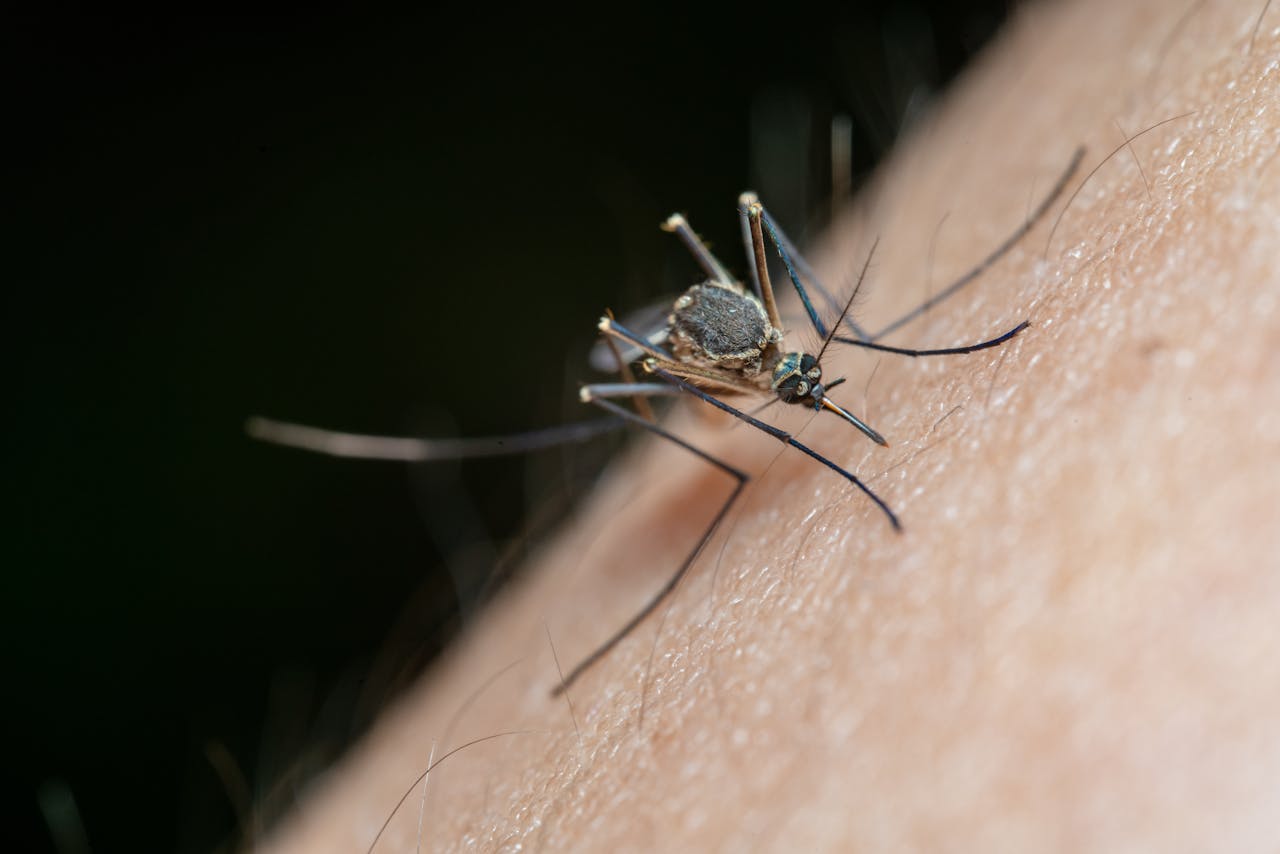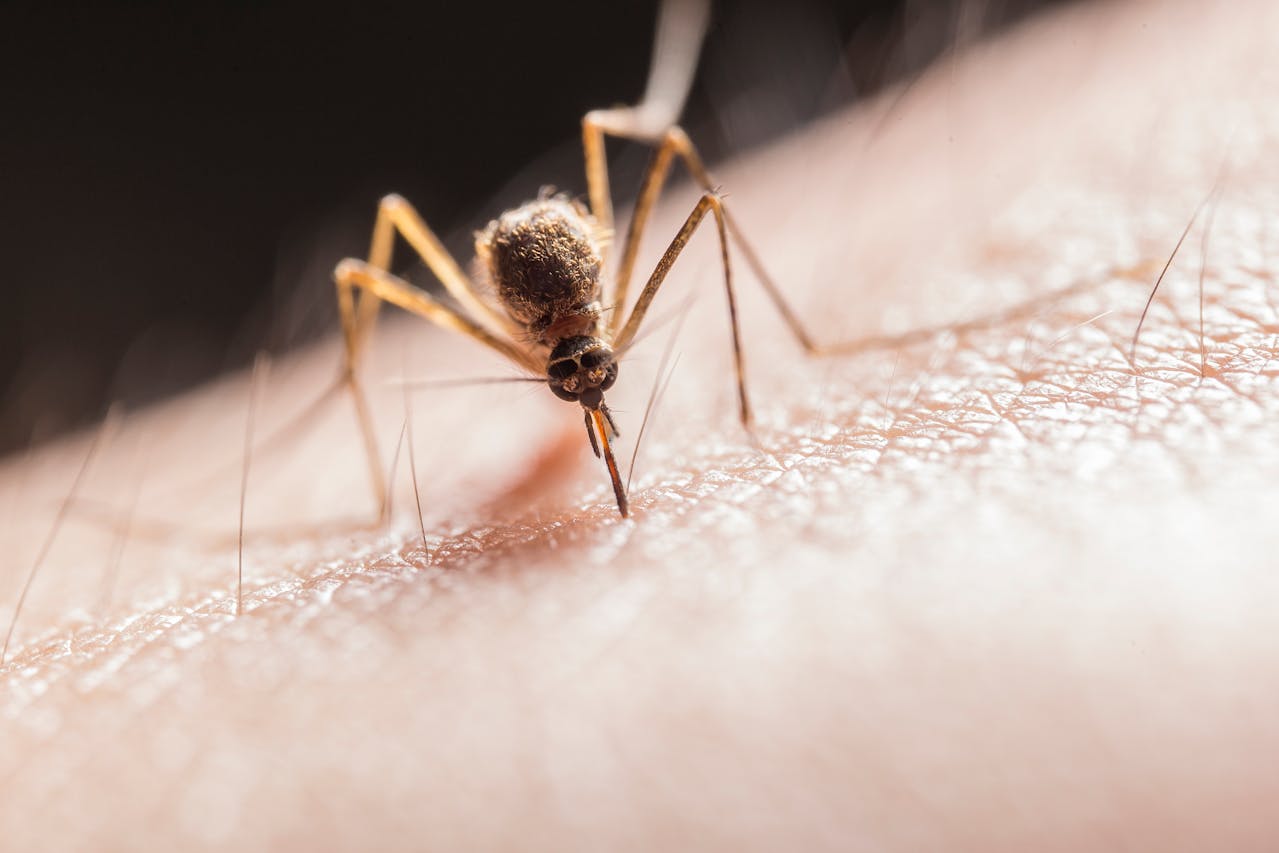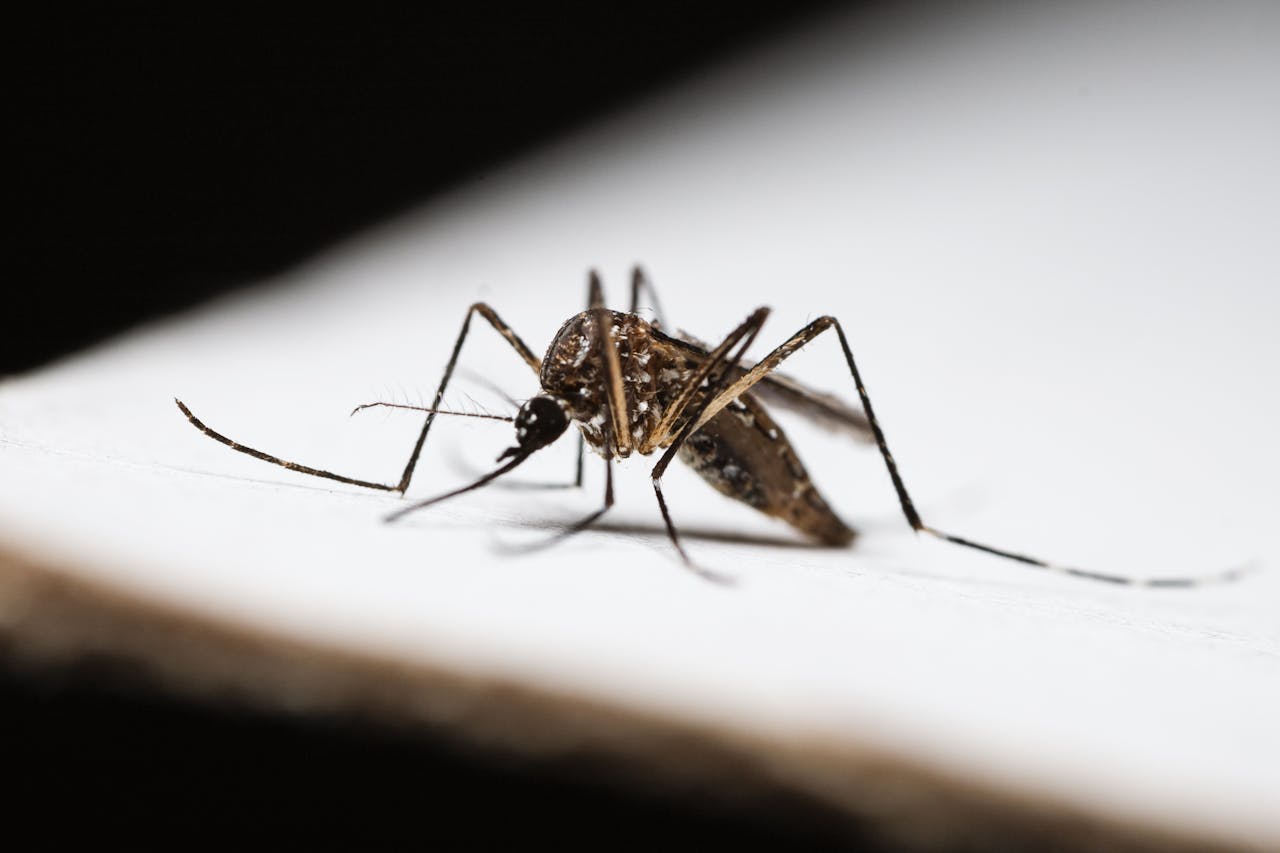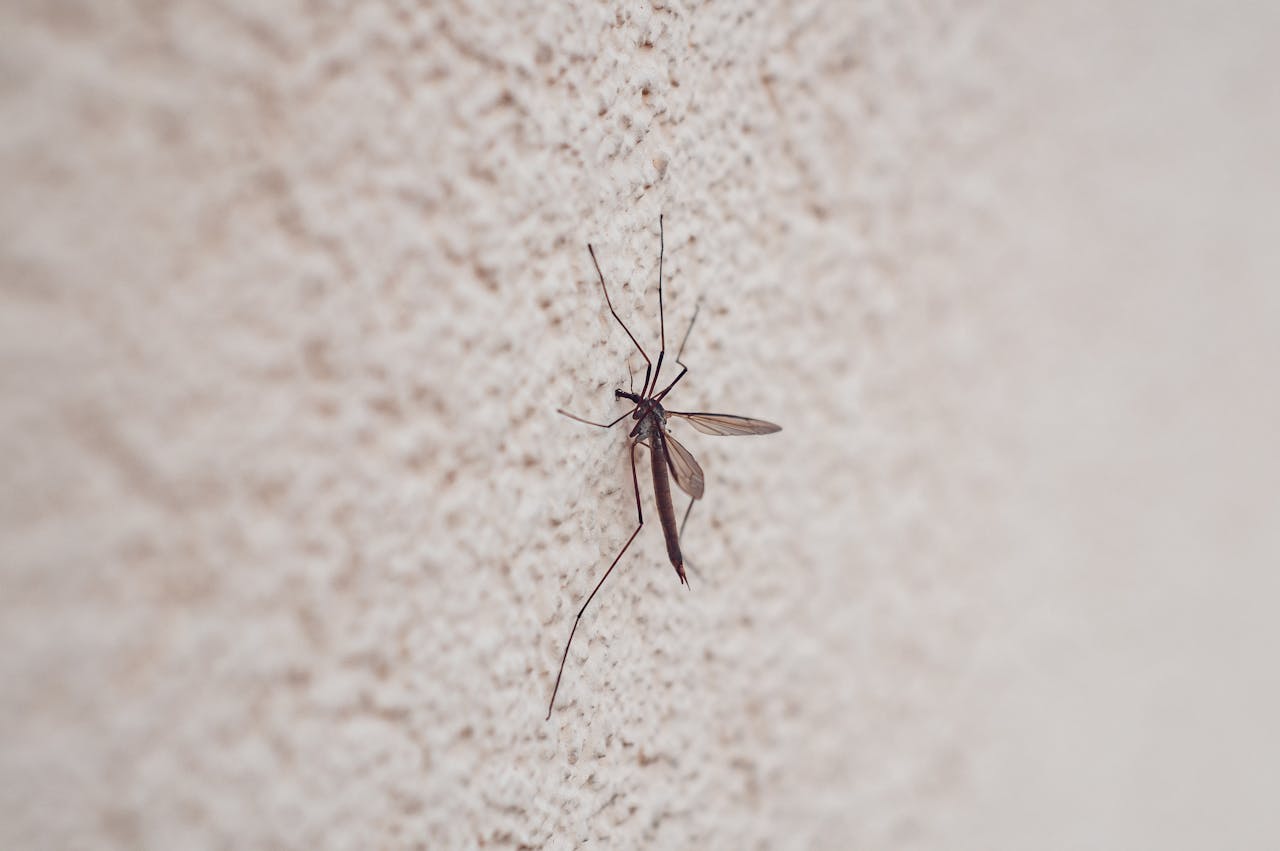
What Does a Lot of Mosquitoes in the House Indicate According to Javanese Primbon: Complete Interpretation and Meaning
The presence of many mosquitoes in the house often causes discomfort and worry for its inhabitants. However, did you know that in Javanese tradition, this phenomenon is believed to have its own meaning? Let’s explore more about the meaning of many mosquitoes in the house according to Javanese primbon along with various related aspects.
1. Understanding Javanese Primbon

Mosquito (credit: pexels.com)
Javanese Primbon is a collection of traditional knowledge of the Javanese people that has been passed down through generations. Primbon contains various predictions, guidelines, and interpretations related to daily life, including natural phenomena and unusual events. One of the topics discussed in primbon is the meaning behind the presence of certain animals in the house, including mosquitoes.
Although it lacks scientific basis, primbon is still firmly held by some Javanese people as a guide to life. They believe that primbon contains local wisdom that has been tested by time. In the context of many mosquitoes at home, Javanese primbon offers various interesting interpretations to study.
Javanese primbon is not just a collection of predictions, but also reflects the life philosophy of the Javanese people. It contains noble values such as balance, harmony with nature, and the importance of self-introspection. Therefore, studying primbon is not merely about seeking knowledge of fate, but also an effort to understand and live life more wisely.
In a modern context, primbon can be seen as an interesting cultural heritage to be preserved. Although many people may no longer fully believe in the predictions contained within it, the philosophical values and local wisdom found in the primbon remain relevant for study and reflection.
2. Symbolism of Mosquitoes in Javanese Culture
Before discussing the meaning of many mosquitoes in the house, it is important to understand the symbolism of mosquitoes in Javanese culture. Mosquitoes are viewed as creatures with several unique characteristics:
- Persistence - Mosquitoes are known for their tenacity in seeking prey, which can be interpreted as a symbol of perseverance in pursuing goals.
- Adaptability - Mosquitoes can survive in various environments, symbolizing flexibility and the ability to adapt.
- Courage - Despite their small size, mosquitoes boldly approach much larger beings, which can be interpreted as courage in facing challenges.
- Speed and agility - The rapid and elusive movements of mosquitoes can symbolize intelligence and vigilance.
In Javanese philosophy, every creature, no matter how small, has a role and meaning in the balance of nature. Mosquitoes, although often considered pests, also have a place in the ecosystem. Their presence in the house, according to the primbon, can carry specific messages or signs.
Some common interpretations of the symbolism of mosquitoes in Javanese culture include:
- Warning - The presence of mosquitoes can be seen as a warning to be more vigilant about "minor disturbances" in life.
- Test of patience - Dealing with mosquitoes requires patience, which can be interpreted as a test of endurance in facing life's trials.
- Reminder of small things - Small yet bothersome mosquitoes can serve as a reminder not to overlook small matters that can have a significant impact.
- Symbol of fortune - In some interpretations, mosquitoes that "suck blood" can be seen as a symbol of incoming fortune.
It is important to remember that these interpretations vary and are highly dependent on the context and individual understanding of the primbon and Javanese philosophy.
3. Meaning of Many Mosquitoes at Home According to Time
In Javanese primbon, the presence of many mosquitoes in the house has different meanings. Here is the explanation:
1. Many Mosquitoes in the House in the Morning
If many mosquitoes appear in the house in the morning, it is considered a fairly good sign. The morning symbolizes a new beginning and full of hope. Mosquitoes that come at this time are believed to bring positive energy to start the day. Some interpretations mention:
- An unexpected fortune will come in the near future
- The day will go smoothly and full of luck
- There will be good news received, especially related to work or business
- Efforts or work will yield satisfying results in the near future
However, it is important to remember that the presence of mosquitoes in the morning can also serve as a reminder to remain vigilant and not let one's guard down, even if the new day starts off well.
2. Many Mosquitoes in the House in the Afternoon
Many mosquitoes appearing in the house in the afternoon have a slightly different interpretation. Daytime is considered a productive time, so the presence of mosquitoes at this time can be interpreted as:
- A reminder not to be complacent with temporary success
- A sign that there are "disruptions" or minor obstacles in work that need to be addressed
- An invitation to focus more and not be easily distracted by trivial matters
- A sign that there will be challenges that need to be faced wisely
Nevertheless, the appearance of mosquitoes during the day can also be interpreted as a reminder to remain diligent and persistent in carrying out activities, much like the tenacity of mosquitoes in seeking prey.
3. Many Mosquitoes in the House in the Evening
Evening in Javanese primbon is often associated with a transitional time. The many mosquitoes appearing in the house in the evening can have dual meanings:
- A sign that there will be changes in life, whether small or large
- A warning to be more careful in making decisions, especially as the day comes to an end
- An invitation for self-introspection and reflection on what has been done throughout the day
- A sign that there may be something important that has been overlooked and needs to be revisited
The presence of mosquitoes in the evening can also be interpreted as a reminder to prepare oneself for facing the "night" or upcoming challenges.
4. Many Mosquitoes in the House at Night
Nighttime is considered a time for rest and tranquility. The abundance of mosquitoes appearing in the house at night has various interpretations:
- It could be a good sign - bringing tranquility and peace amidst the darkness
- However, it can also be a warning - there is negative energy or problems trying to "disturb" the tranquility
- An invitation to be more vigilant about things that are not visible or hidden
- A sign that there is a spiritual message or important dream that needs attention
In this context, the appearance of mosquitoes at night can be seen as a test of patience and vigilance at a time when we are supposed to rest.
It is important to remember that these interpretations are not absolute and greatly depend on the context and conditions of the individual experiencing them. In interpreting this phenomenon, it is always advisable to use wisdom and not be too fixated on literal interpretations.
4. Meaning of Many Mosquitoes at Home Based on Their Type

Mosquito (credit: pexels.com)
In Javanese primbon, the types of mosquitoes that frequently appear in homes also have their own meanings. Here is the explanation:
1. Common Mosquito (Culex)
This type of mosquito is the most commonly found in homes. In primbon, the presence of many Culex mosquitoes can be interpreted as:
- A sign of "minor disturbances" in life that need to be addressed
- A symbol of perseverance and tenacity - reminding to remain diligent despite facing obstacles
- A warning to pay more attention to health, especially related to minor illnesses
- A sign that there are small things in life that are neglected but are actually important
2. Malaria Mosquito (Anopheles)
Although rarely found in homes, the presence of many Anopheles mosquitoes has a more serious meaning:
- A warning of threats or dangers that may not be visible but are serious
- A sign to pay more attention to personal and family health
- A symbol of transformation - like malaria which can change lives, this could mean a significant change is coming
- A call to increase vigilance and self-protection
3. Dengue Fever Mosquito (Aedes)
The Aedes mosquito, known as the carrier of the dengue virus, has a specific interpretation:
- A sign of impending trials or challenges that are tough but can be overcome with proper preparation
- A symbol of hidden strength - reminding that minor threats can have major impacts if ignored
- A warning to maintain cleanliness and health of the surrounding environment
- A sign that there is "poison" or negative influences in the environment that need to be watched out for
4. Elephant Mosquito (Toxorhynchites)
This type of mosquito rarely enters homes, but if it appears in large numbers, it can be interpreted as:
- A sign of upcoming luck or great fortune
- A symbol of uniqueness and distinction - reminding to appreciate differences and one's own uniqueness
- A sign that there is great potential yet to be explored within oneself
- A warning not to judge something solely based on its appearance
It is important to remember that these interpretations are symbolic and should not be used as the sole guide in making decisions.
Always use common sense and consider the context of the situation when interpreting this phenomenon.
5. Meaning of Many Mosquitoes at Home Based on Their Number
In Javanese primbon, the number of mosquitoes that appear in the house also has its own meaning. Here is the explanation:
1. Few Mosquitoes (1-5 insects)
If only a few mosquitoes are seen in the house, this can be interpreted as:
- A sign that there will be one or several minor events that may be disruptive but not too significant
- A symbol of focus - an invitation to pay attention to the small details in life
- A sign that there are minor disturbances or discomforts that need to be addressed
- A warning not to overlook small issues that could develop into larger problems
2. Quite a Few Mosquitoes (6-20 insects)
The presence of mosquitoes in a considerable number can be interpreted as:
- A symbol of challenges - there are some obstacles or problems that need to be faced
- A sign that there will be small changes in life that cumulatively can have a big impact
- An invitation to increase vigilance and attention to the surrounding environment
- A sign that there are some aspects of life that need to be improved or fixed
3. Very Many Mosquitoes (more than 20 insects)
If mosquitoes appear in very large numbers, this can be interpreted as:
- A warning of significant problems or major challenges that are coming
- A symbol of chaos or imbalance in life that needs to be addressed immediately
- A sign that there are many small things that have been neglected and are now piling up into a major problem
- An invitation to engage in deep introspection and perhaps make significant changes in life
4. Countless Mosquitoes
In very rare cases where mosquitoes appear in such large numbers that they are uncountable, this can have a special meaning:
- A sign that there will be major changes or significant life transformations
- A symbol of overwhelm - the feeling of being overwhelmed by various demands or problems in life
- A sign that there may be something very fundamental in life that needs to be changed or improved
- An invitation to seek help or support in facing life's challenges
It is important to remember that these interpretations are symbolic and should not be taken as definite predictions. The number of mosquitoes appearing in the house is more often related to environmental factors and cleanliness than to mystical signs. However, interpreting this phenomenon symbolically can be a means of introspection and beneficial self-reflection.
6. How to Deal with Many Mosquitoes at Home
Regardless of various interpretations, there are several things you can do when you find many mosquitoes in your house:
1.Stay Calm and Rational
It is important not to panic or worry too much. Remember that the presence of mosquitoes is more often caused by environmental factors than by mystical signs. Approach this situation calmly and rationally.
2.Evaluate the Environmental Conditions
Check the areas around the house to find the sources of mosquito breeding. Look for standing water, accumulated garbage, or overly dense vegetation that could serve as breeding grounds for mosquitoes.
3.Improve Cleanliness
Conduct a thorough cleaning inside and around the house. Dispose of standing water, clean drainage channels, and ensure there are no open containers that can collect rainwater.
4.Use Safe Mosquito Repellent Methods
Choose mosquito repellent methods that are safe for health and environmentally friendly. This can include using mosquito nets, natural mosquito repellent lotions, or mosquito-repelling plants like lavender and lemongrass.
5.Self-Reflection and Introspection
Use this moment as an opportunity for self-reflection. Are there "mosquitoes" in your life - small distractions that need to be addressed? Perhaps this is the right time to make positive changes in your life.
6.Maintain Balance and Harmony
In Javanese philosophy, balance and harmony with nature are very important. Think about how you can live more in harmony with your surroundings, including in terms of maintaining cleanliness and environmental health.
7.Consult an Expert if Necessary
If the mosquito problem persists despite taking the steps above, do not hesitate to consult a pest control expert or environmental health officer.
8.Educate Yourself and Your Family
Learn more about mosquitoes, their life cycle, and effective ways to control their population. Share this knowledge with family members to raise collective awareness.
9.Implement Long-Term Prevention
Think of long-term solutions to prevent mosquito problems in the future. This could include improving drainage systems, installing screens on windows, or planting mosquito-repelling plants around the house.
10.Take Positive Lessons
Regardless of the interpretation of traditional beliefs, take the positive side from this experience. Perhaps this serves as a reminder to pay more attention to the environment around us or to be more vigilant about the small things that can have a big impact on life.
By approaching this situation wisely and balanced, you not only address the mosquito problem practically but also can take valuable lessons and wisdom for life.
7. Myths and Facts About Many Mosquitoes at Home

Mosquito (credit: pexels.com)
Regarding the phenomenon of many mosquitoes at home, there are various myths and facts circulating in society. Let us examine some of them:
Myths:
- Many mosquitoes at home always indicate that misfortune or bad luck will come
- Mosquitoes only like the blood of certain people
- Turning off the lights at night will drive away all mosquitoes
- Mosquitoes are only active at night
- Eating certain foods can make the body immune to mosquito bites
Facts:
- The presence of many mosquitoes at home is more often caused by environmental factors and cleanliness
- Mosquitoes are attracted to carbon dioxide, body heat, and certain chemical compounds produced by human skin
- Some types of mosquitoes, such as Aedes aegypti, are active during the day
- Using mosquito nets and mosquito repellent lotion is more effective than just relying on myths
- Mosquitoes play an important role in the ecosystem as food for other animals and as pollinators for some types of plants
Understanding these facts is important for effectively and rationally addressing the mosquito problem, without getting caught up in unfounded beliefs.
8. Scientific Perspective on Many Mosquitoes at Home
From a scientific perspective, there are several reasons why mosquitoes can appear in large numbers inside the house:
1.Environmental Conditions that Support
Mosquitoes breed in stagnant water. A home environment with many puddles, such as plant pots, old tires, or clogged drainage, becomes an ideal place for mosquitoes to lay eggs and breed.
2.Temperature and Humidity
Mosquitoes prefer warm and humid environments. A house with suitable temperature and humidity will attract more mosquitoes to enter and stay.
3.Availability of Food
Female mosquitoes need blood for the reproductive process. A house inhabited by humans or pets provides an abundant food source for mosquitoes.
4. Lighting
Some types of mosquitoes are attracted to light. The use of certain lamps at night can attract mosquitoes into the house.
5. Vegetation Around the House
Plants and shrubs around the house can serve as resting places for adult mosquitoes. From here, they can easily enter the house.
6. Weather Changes
Weather changes, especially during the rainy season, can significantly increase the mosquito population.
7. Resistance to Insecticides
Excessive use of insecticides can cause mosquitoes to become resistant, making them harder to control.
Experts emphasize that the presence of many mosquitoes inside the house is more of an environmental health issue than a mystical sign. Therefore, a scientific and practical approach to addressing this problem is highly recommended.
9. How to Prevent Many Mosquitoes at Home
To prevent a large number of mosquitoes in the house, here are some effective steps that can be taken:
1. Eliminate Breeding Places
Remove all standing water around the house. Clean gutters, cover buckets or water containers, and ensure there are no used tires or plant pots that collect rainwater.
2. Use Mosquito Nets
Install mosquito nets on beds and windows to prevent mosquitoes from entering, especially at night while sleeping.
3. Install Screens on Ventilation
Install mosquito screens on all windows and ventilation of the house to prevent mosquitoes from entering while still allowing good air circulation.
4. Use Natural Repellents
Apply mosquito repellent lotion containing natural ingredients such as citronella or eucalyptus on exposed skin.
5. Plant Mosquito-Repelling Plants
Plant species known to repel mosquitoes, such as lavender, lemongrass, or rosemary, around the house.
6. Maintain Cleanliness of the Yard
Regularly clean the yard of trash and leaves that can become hiding places for mosquitoes. Mow the grass and trim the bushes regularly.
7. Use Fans
Mosquitoes are weak flyers. Using fans can help drive mosquitoes away from specific areas.
8. Install Mosquito Traps
Use electric or UV mosquito traps that can attract and capture mosquitoes without using harmful chemicals.
9. Adjust Lighting
Reduce the use of lights that attract mosquitoes at night. If necessary, use yellow lights that are less attractive to mosquitoes.
10. Conduct Regular Fogging
For severe cases, consider conducting fogging regularly, but ensure this is done by professionals and with safe materials.
11. Fix the Drainage System
Ensure the drainage system around the house is functioning well to prevent water stagnation that can become breeding grounds for mosquitoes.
12. Use Natural Mosquito Repellents
Try using natural mosquito repellents like citronella incense or aromatherapy candles that contain essential oils that repel mosquitoes.
13. Keep the House Clean
Regularly clean the house, especially dark and damp areas that can become hiding places for mosquitoes.
14. Pay Attention to Clothing
Wear light-colored and long-sleeved clothing when outdoors, especially in the evening and at night.
15. Consult an Expert
If the mosquito problem persists despite implementing the above measures, consult a pest control expert for more specific solutions.
By consistently applying a combination of these methods, you can significantly reduce the mosquito population in and around your home. Remember that prevention is the key to tackling mosquito problems.
10. Benefits of Mosquito Presence in the Environment

Mosquito (credit: pexels.com)
Although often considered pests, mosquitoes actually play several important roles in the ecosystem. Here are some benefits of the presence of mosquitoes in the environment:
1. Part of the Food Chain
Mosquitoes are an important food source for various types of animals such as birds, bats, fish, and other predatory insects. The presence of mosquitoes helps maintain the population balance of these animals.
2. Plant Pollinators
Not all mosquitoes suck blood. Some species of male and female mosquitoes feed on flower nectar, aiding in the pollination process of certain plants, especially in Arctic areas where other pollinating insects are rarely found.
3. Indicators of Environmental Health
The presence or absence of mosquitoes in an area can be an indicator of environmental health. Drastic changes in mosquito populations can signify significant ecological changes.
4. Contributions to Medical Research
Studies on mosquitoes and the diseases they transmit have greatly contributed to the development of medical science and our understanding of the immune system.
5. Decomposers of Organic Material
Mosquito larvae feed on microorganisms and organic particles in water, helping to decompose organic material and maintain the balance of aquatic ecosystems.
6. Evolution and Adaptation
The presence of mosquitoes has driven evolution and adaptation in various species, including humans, in developing defense mechanisms against mosquito-borne diseases.
7. Genetic Resources
The mosquito genome holds valuable genetic information for biological and evolutionary research. Studies on mosquito genetics can provide important insights in various fields of science.
8. Development of Technology
Efforts to control mosquito populations have spurred the development of various innovative technologies that are beneficial not only for pest control but also in other fields such as agriculture and environmental health.
9. Water Purification
Larvae of mosquitoes feed on microorganisms and particles in the water, which in some cases can aid in the natural water purification process in certain ecosystems.
10.Ecosystem Balance
As part of the food chain and nutrient cycle, mosquitoes play a role in maintaining the overall balance of the ecosystem.
Although these benefits exist, it is important to remember that mosquitoes can also be vectors of dangerous diseases. Therefore, controlling the mosquito population remains important, especially in human residential areas. However, understanding the ecological role of mosquitoes can help us develop more balanced and environmentally friendly control methods.
11. Frequently Asked Questions About Many Mosquitoes at Home
Here are some frequently asked questions related to the phenomenon of many mosquitoes in homes along with their answers:
1.Does a large number of mosquitoes in the house always mean a dirty environment?
Not always. While environmental cleanliness does play an important role, other factors such as weather, humidity, and the presence of water sources around the house can also affect the mosquito population. Even a clean house can experience mosquito problems if there are conditions that support their breeding nearby.
2.What is the most effective way to repel mosquitoes from the house?
There is no single most effective way for all situations. A combination of several methods usually yields the best results. This includes eliminating mosquito breeding sites, using mosquito nets and screens on windows, as well as using repellents. An integrated approach that involves prevention and control is usually the most effective.
3.Is it true that mosquitoes only bite certain people?
There are several factors that make someone more attractive to mosquitoes, such as the amount of carbon dioxide emitted, body temperature, and certain chemical compounds on the skin. However, this does not mean that mosquitoes only bite certain people. Everyone is potentially at risk of being bitten by mosquitoes; it’s just that some people may be targeted more often.
4.Can the number of mosquitoes in the house be a sign of impending rain?
Although there is a popular belief about this, scientifically, there is no direct relationship between the number of mosquitoes and rain predictions. However, conditions that precede rain, such as increased humidity, can indeed enhance mosquito activity.
5.Are all types of mosquitoes harmful to health?
Not all types of mosquitoes are harmful to human health. Of the thousands of mosquito species, only a few are known to transmit diseases to humans. However, it is still important to be cautious and take preventive measures against mosquito bites.
6. How long is the mosquito life cycle?
The mosquito life cycle varies depending on the species and environmental conditions, but generally lasts between 8 to 30 days. This includes the egg, larva, pupa, and adult phases.
7. Is the use of chemical mosquito repellents safe for long-term health?
The use of chemical mosquito repellents in the right amounts and methods is generally safe. However, excessive or long-term exposure to certain chemicals can pose health risks. It is recommended to carefully follow usage instructions and consider natural alternatives if possible.
8. How can you distinguish a mosquito bite from bites of other insects?
Mosquito bites usually leave small red itchy marks. Unlike bites from other insects, mosquito bite marks tend to be smaller and less swollen. However, reactions to bites can vary among individuals.
9. Is vitamin B1 effective in repelling mosquitoes?
Although there is popular belief that consuming vitamin B1 can repel mosquitoes, scientific research has not found strong evidence to support this claim. Standard preventive methods such as using repellents are still considered more effective.
10. Can mosquitoes carry the coronavirus?
To date, there is no scientific evidence that mosquitoes can transmit the coronavirus (COVID-19). This virus primarily spreads through respiratory droplets and close contact between humans.
11. Does the color of clothing affect mosquito attraction?
Yes, the color of clothing can influence mosquito attraction. Mosquitoes tend to be more attracted to dark colors like black, navy blue, or red. Wearing light-colored clothing can help reduce the risk of mosquito bites.
12. How to naturally treat mosquito bites?
Some natural ways to relieve itching from mosquito bites include using ice, honey, apple cider vinegar, or aloe vera gel on the affected area. However, if a severe allergic reaction occurs, consult a doctor immediately.
13. Can mosquitoes enter through air conditioning?
Generally, a well-functioning air conditioning system will not allow mosquitoes to enter the house. AC filters are usually tight enough to prevent insects from getting in. However, if there are gaps or damage in the AC system, there is a small possibility that mosquitoes could enter.
14. How far can mosquitoes fly?
The flying distance of mosquitoes varies depending on the species. Some types of mosquitoes can only fly a few hundred meters from their breeding sites, while others can fly up to several kilometers. Wind factors can also influence the flying distance of mosquitoes.
15. Can indoor plants attract mosquitoes?
Some indoor plants, especially those that require a lot of water, can become breeding grounds for mosquitoes if not properly maintained. However, there are also plants known to repel mosquitoes, such as lavender or lemongrass.
Understanding these facts can help effectively address mosquito problems in the home. Always remember that the best approach is a combination of various prevention and control methods.
12. Conclusion
The phenomenon of the abundance of mosquitoes in the house is a complex issue, involving cultural aspects, traditional beliefs, and scientific realities. Through this in-depth discussion, we have explored various perspectives, ranging from the interpretations of Javanese primbon to modern scientific explanations.
From the perspective of Javanese primbon, the presence of many mosquitoes in the house can be interpreted as a sign or specific message, depending on the time, type, and number of mosquitoes that appear. This interpretation reflects the local wisdom and life philosophy of the Javanese people, which emphasizes balance and harmony with nature.
However, it is important to approach these beliefs wisely and not neglect scientific approaches in addressing the mosquito problem. Scientifically, the abundance of mosquitoes in the house is more often caused by environmental factors such as cleanliness, humidity, and the availability of breeding places.
In addressing this issue, an integrated approach that combines traditional wisdom and modern methods has proven to be the most effective. This includes preventive efforts such as maintaining environmental cleanliness, eliminating mosquito breeding sites, and using safe and effective mosquito repellent methods.
More than just a health or comfort issue, this phenomenon can also serve as a moment for self-reflection and introspection. How do we respond to "minor disturbances" in life? Are there aspects of our lives that need more attention or improvement?
Ultimately, how we interpret and respond to the abundance of mosquitoes in the house depends on each individual's perspective and beliefs. The most important thing is to maintain a balance between respecting traditions, thinking rationally, and acting practically in facing various phenomena around us.
With a more comprehensive understanding of this issue, it is hoped that we can tackle the challenges of mosquitoes at home more wisely and effectively, while still appreciating local wisdom and maintaining balance with the surrounding nature.
(kpl/dhm)
Disclaimer: This translation from Bahasa Indonesia to English has been generated by Artificial Intelligence.

















